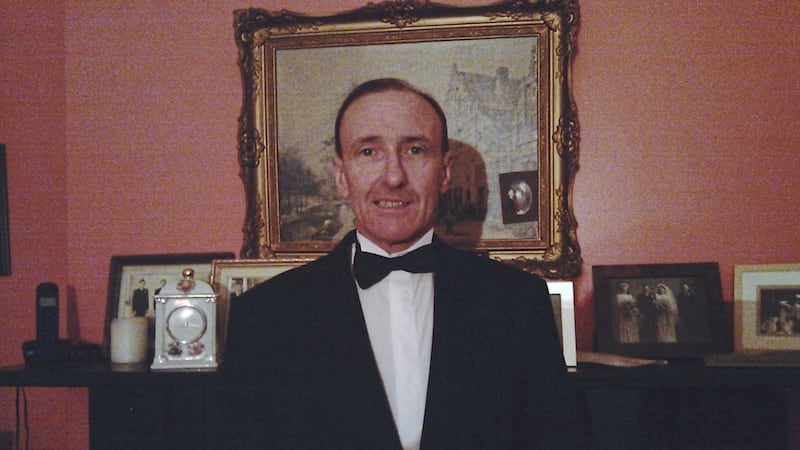THE family of a man who died by suicide have called for an urgent review of the diagnosis and care of mental health patients after expressing anger that he was "being treated for an illness he didn't have".
Gerard McGonagle (59) took his own life at his home in Rosetta Parade in south Belfast in June 2013 after years of mental health difficulties following the loss of employment and the collapse of his marriage.
The father-of-five and grandfather, who had previously owned his own car sales business on the Ormeau Road, had been receiving treatment in hospital and from community mental health teams at his home.
The treatment, including electro-convulsion therapy, was carried out on the basis that Mr McGonagle was suffering from depression.
However, an inquest into his death has now ruled that "treatment-resistant delusional disorder" was a "significant contributing factor" in his suicide.
Coroner Suzanne Anderson said that Mr McGonagle had become convinced that his body was shrinking, that he had lumps on his head but "remained adamant he was not suffering from a mental health condition".
In her findings, the coroner said that, having studied medical reports and listened to witnesses: "I find that I prefer the diagnosis of a treatment resistant delusional disorder.
The coroner said that despite concerns "there were no conditions to detain Mr McGonagle under the Mental Health Act".
Ms Anderson said: "It is accepted that patients with delusional disorders have a high risk of suicide and are highly resistant to treatment."
Speaking to The Irish News following the verdict, his daughter, Ruth McGonagle, said: "This condition was only diagnosed after his death. We were always told that he was depressed, and it was only when we went to the inquest that the diagnosis had been changed.
"If we had been told the condition was not treatable one of us would have quit our job to look after him."
The inquest was told of family concerns that Mr McGonagle's fear of hospital led him to "put up a front for medical staff" in order to be discharged early.
Ms McGonagle said: "He could put a mask on and we had to fight to show the 'mask on' side of dad."
"Was the only way he could be taken into hospital by showing them his suicide plan? We are losing half of this country because they are not telling health staff their suicide plans."
The McGonagle family said they had pushed for an inquest into Gerard's death "not to blame people" but to "change things for the better".
Another daughter, Cecelia McGonagle, said: "We want something in place so that the families are listened to. We felt as if we were interfering if we got involved.
"At what point do you decide that a person at high risk of suicide should be detained or not? What we are saying to the Trust is - don't play God."
A Belfast Trust spokeswoman said: "We deeply sympathise with the family at this very difficult time. Although we cannot discuss individual patients, we would be happy to discuss these issues with the family directly."




